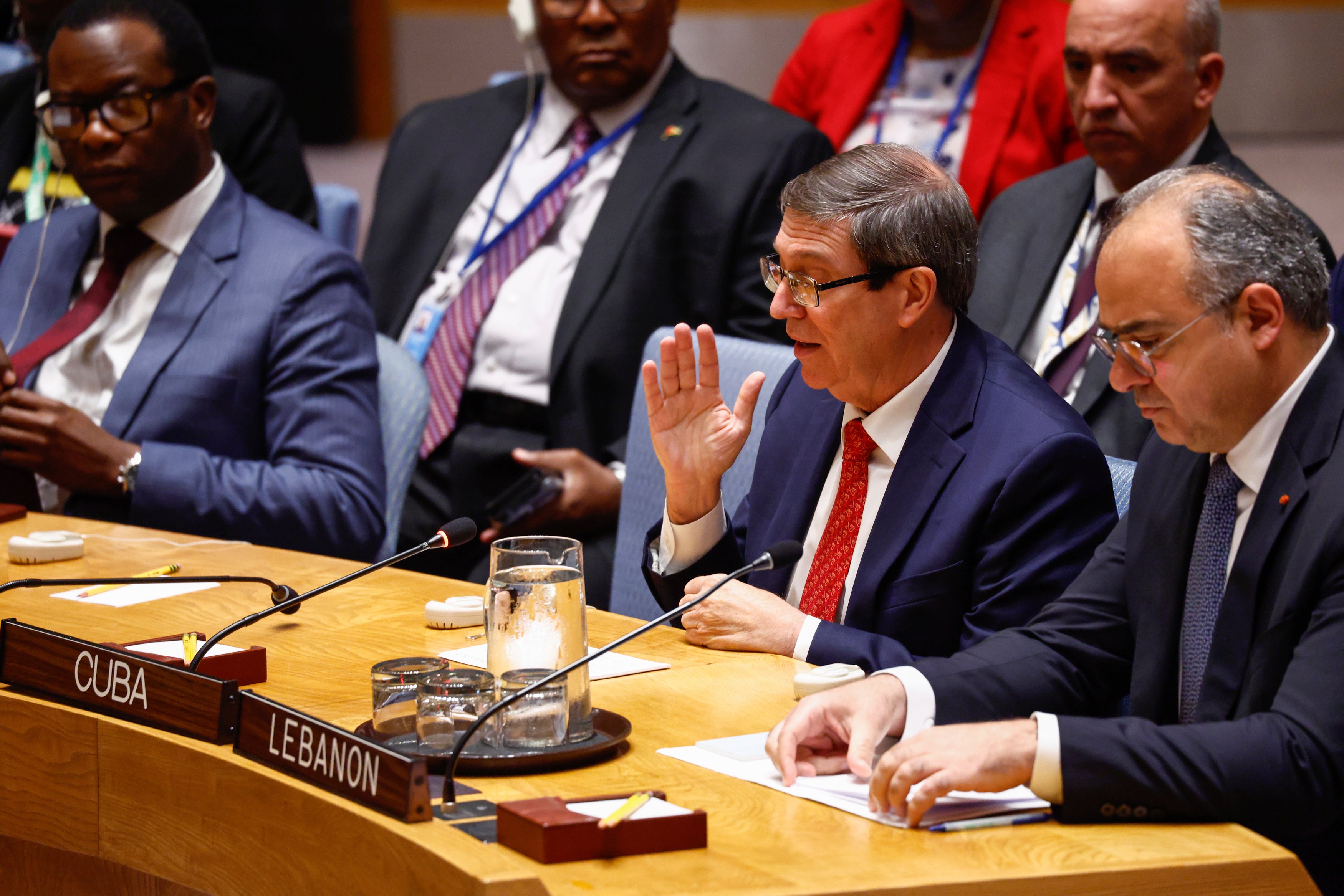UN General Assembly condemns the US economic embargo of Cuba for a 32nd year
The U.N. General Assembly has voted overwhelmingly to condemn the American economic embargo of Cuba for a 32nd year after its foreign minister strongly criticized the Biden administration and expressed hope a new U.S. president would end it

The U.N. General Assembly voted overwhelmingly Wednesday to condemn the American economic embargo of Cuba for a 32nd year after its foreign minister strongly criticized the Biden administration and expressed hope a new president would end it.
The vote in the 193-member world body was 187-2, with only the United States and Israel against the resolution, and one abstention. It tied the record for support for the Caribbean nation first reached in 2019 and again last year.
Cuban Foreign Minister Bruno Rodriguez blamed the U.S. government’s “maximum pressure policy” aimed at depriving Cuba of the imported fuel it relies on for a widespread blackout this month, including when Hurricane Oscar lashed the island.
“President Joseph Biden’s administration usually claims that its policy is intended to 'help and support the Cuban people,’” he said. “Who would believe such an assertion?”
General Assembly resolutions are not legally binding, but they reflect world opinion, and the vote has given Cuba an annual stage to demonstrate that the U.S. stands apart in its decades-old efforts to isolate the Caribbean nation.
Cuba has struggled with one of the worst economic and energy crises in its history. Besides waves of blackouts, citizens are frustrated over food shortages and inflation. Hundreds of thousands have migrated, many headed to the United States.
The embargo was imposed in 1960 following the revolution led by Fidel Castro and the nationalization of properties belonging to U.S. citizens and corporations. Two years later, it was strengthened.
Then-Cuban President Raul Castro and then-President Barack Obama officially restored relations in July 2016, and that year the U.S. abstained on the resolution calling for an end to the embargo for the first time. But Obama’s successor, Donald Trump, sharply criticized Cuba’s human rights record, and in 2017 the U.S. again voted against the resolution, and it has ever since.
U.S. deputy ambassador, Paul Folmsbee, told the assembly that the United States strongly supports the Cuban people’s pursuit of a future that respects human rights and fundamental freedoms.
“Sanctions are one element of our broader effort to advance democracy and promote respect for human rights and fundamental freedoms in Cuba,” he said.
He noted that about 1,000 political prisoners have been unjustly detained in Cuba, more than at any point in Cuba’s recent history.
Folmsbee said U.S. sanctions exempt food, medicine and other basic goods and that the U.S. exported nearly $336 million in agricultural products and authorized additional humanitarian exports last year.
In May, the U.S. lifted some financial restrictions against Cuba in an effort to boost private businesses on the island. That included allowing independent entrepreneurs to open and access U.S. bank accounts online to support their businesses as well as steps to open up more internet-based services and expand private companies’ ability to make certain financial transactions.
Rodriguez said that under Biden’s presidency, Cuba has lost more than $16 billion and that measures announced in the last year “as alleged palliatives” to the embargo are not effective.
Noting next week's U.S. presidential election, the Cuban minister said the winner will have the opportunity to decide whether to continue “the inhumane siege measures of the last six decades” or heed an increasing number of Americans and an overwhelming majority of nations “and allow our country to develop its true potential and capabilities.”
Rodriguez said Cuba will defend its "right to build an independent, socialist future” but is willing to discuss moving toward constructive ties with the new U.S. administration.
Bookmark popover
Removed from bookmarks